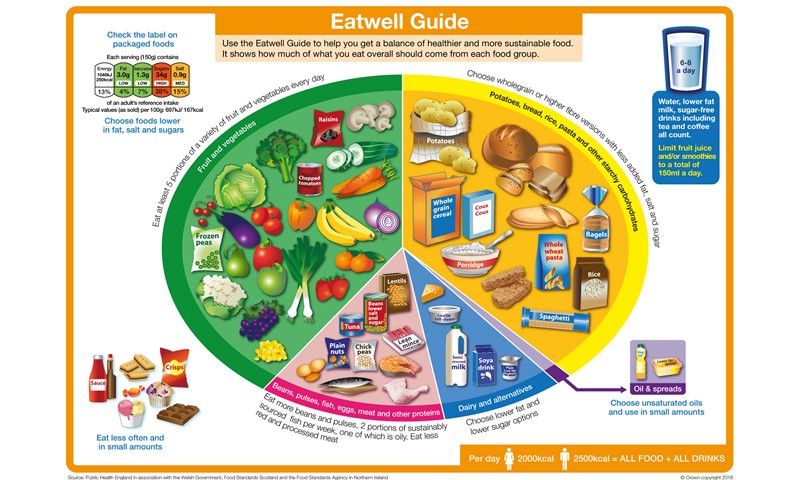Welcome to the world of balanced nutrition! In this blog, we will explore the essential components of a healthy and well-rounded diet. Understanding and incorporating balanced nutrition in every meal is key to reaching your health goals and maintaining overall well-being. By ensuring that your body receives the right balance of macronutrients, such as carbohydrates, proteins, fats, and fiber, as well as micronutrients like vitamins and minerals, you can optimize your body’s functions and support a healthy lifestyle. Additionally, we will discuss the importance of hydration and provide practical tips for incorporating balanced nutrition into your daily meals. So let’s dive in and discover the foundations of a nourishing diet!
Overview of balanced nutrition and its importance
Balanced nutrition is crucial for maintaining good health and overall well-being. It involves consuming a variety of foods from different food groups in the right proportions to ensure your body receives all the essential nutrients it needs. Following a balanced diet provides numerous benefits, including:
- Adequate supply of energy to fuel your body.
- Proper growth and development.
- Enhanced immune function.
- Improved mental and physical performance.
- Reduced risk of chronic diseases such as obesity, diabetes, and heart disease.
By incorporating balanced nutrition in every meal, you can optimize your health and enjoy a vibrant and energetic life.
Fundamental principles of balanced nutrition

To achieve balanced nutrition, it is important to follow some fundamental principles. First, focus on consuming a variety of nutrient-dense foods from all food groups, including fruits, vegetables, grains, proteins, and dairy or dairy alternatives. Second, maintain portion control by monitoring the quantity of food you consume. Third, pay attention to the quality of the food you eat, opting for whole, unprocessed foods whenever possible. Lastly, listen to your body’s hunger and fullness cues to avoid overeating. By following these principles, you can ensure a well-rounded and nutritious diet.
Macronutrients: Carbohydrates and Proteins

Carbohydrates and proteins are essential macronutrients that play a crucial role in a balanced diet. Carbohydrates provide the body with energy, and they can be found in foods like fruits, vegetables, grains, and legumes. It is important to choose complex carbohydrates, such as whole grains, over refined carbohydrates. Proteins are necessary for the growth and repair of tissues, and they can be found in sources like lean meats, poultry, fish, beans, and tofu. Make sure to include a variety of carbohydrates and proteins in your meals to meet your body’s nutritional needs and maintain a balanced diet.
Understanding carbohydrates and their role in a balanced diet
Carbohydrates are a vital source of energy and should be a crucial component of a balanced diet. They can be found in various foods such as fruits, vegetables, grains, and legumes. Opt for complex carbohydrates like whole grains, which provide fiber and essential nutrients, rather than refined carbs. These complex carbohydrates release energy slowly, helping to maintain stable blood sugar levels and keeping you feeling fuller for longer. Including a variety of carbohydrates in your meals ensures a balanced intake of nutrients for optimal health and well-being.
The significance of proteins and recommended daily intake
Proteins are essential for various bodily functions, including growth, repair, and maintenance of tissues. They play a crucial role in muscle development and support a healthy immune system. It is recommended that adults consume approximately 0.8 grams of protein per kilogram of body weight each day. However, individual protein needs may vary depending on factors such as age, activity level, and overall health. Including protein-rich foods such as lean meats, poultry, fish, beans, legumes, and dairy products in your diet can help ensure an adequate intake of this vital macronutrient.
Macronutrients: Fats and Fiber
When it comes to macronutrients, fats, and fiber play a crucial role in a balanced diet. Fats provide energy and help absorb vitamins, but not all fats are created equal. Focus on consuming healthy fats like avocados, nuts, and olive oil, while limiting saturated and trans fats found in processed and fried foods. On the other hand, fiber aids in digestion and helps regulate blood sugar levels. Include plenty of whole grains, fruits, vegetables, and legumes in your meals to increase your fiber intake. Remember, a balanced diet should include a good balance of fats and fiber to support optimal health.
Table 1: Examples of Healthy Fats and High-Fiber Foods
Healthy Fats:
- Avocado
- Olive oil
- Nuts (such as almonds, walnuts, and cashews)
- Seeds (such as chia seeds and flaxseeds)
- Fatty fish (such as salmon and trout)
High-Fiber Foods:
- Whole grains (such as oats, quinoa, and brown rice)
- Fruits (such as apples, berries, and pears)
- Vegetables (such as broccoli, carrots, and spinach)
- Legumes (such as beans, lentils, and chickpeas)
- Nuts and seeds (such as sunflower seeds and almonds)
Including these foods in your meals will not only provide you with essential nutrients but also contribute to a well-rounded and balanced nutrition plan.
Differentiating between healthy and unhealthy fats
To maintain a balanced nutrition plan, it’s important to understand the difference between healthy and unhealthy fats. Healthy fats, such as those found in avocados, nuts, and olive oil, provide essential nutrients and support heart health. On the other hand, unhealthy fats like saturated and trans fats found in processed and fried foods can increase the risk of cardiovascular diseases. Be mindful of reading labels and opt for healthier cooking methods, like baking or grilling, to reduce the consumption of unhealthy fats. By making smart choices, you can incorporate healthy fats into your meals and support your overall well-being.
The essential role of fiber and its benefits for digestion

Fiber plays a crucial role in maintaining a healthy digestive system. It adds bulk to the stools, preventing constipation and promoting regular bowel movements. Additionally, fiber helps regulate blood sugar levels and promotes satiety, making you feel fuller for longer. A diet rich in fiber can also lower the risk of developing diseases such as heart disease, stroke, and type 2 diabetes. You can easily incorporate fiber into your diet by consuming fruits, vegetables, whole grains, legumes, and nuts. Aim for a daily intake of 25-30 grams of fiber for optimal digestive health.
Micronutrients: Vitamins and Minerals
Micronutrients, such as vitamins and minerals, are essential for overall health and well-being. Vitamins are organic compounds that play a crucial role in various bodily functions, including growth, immune function, and energy production. They can be obtained from a diverse range of foods, including fruits, vegetables, whole grains, and lean proteins. Minerals, on the other hand, are inorganic substances that are essential for the normal functioning of the body. They help maintain healthy bones, regulate fluid balance, and support nerve function. Good sources of minerals include dairy products, seafood, nuts, and seeds. Including a variety of fruits, vegetables, whole grains, and lean proteins in your diet can ensure you receive an adequate amount of vitamins and minerals.
The importance of vitamins for overall health and well-being
Vitamins are essential for maintaining overall health and well-being. They play a crucial role in various bodily functions, including growth, immune function, and energy production. Different vitamins have specific roles in supporting different aspects of health. For example, vitamin C boosts immune function, vitamin D promotes bone health, and vitamin E acts as an antioxidant. Including a variety of fruits, vegetables, whole grains, and lean proteins in your diet can ensure you receive an adequate amount of vitamins. Additionally, taking a daily multivitamin can help fill any nutritional gaps in your diet.
Understanding the significance of minerals in maintaining bodily functions

Minerals play a crucial role in maintaining various bodily functions. They are necessary for proper nerve function, muscle contraction, and the production of hormones and enzymes. Minerals like calcium and phosphorus are essential for building and maintaining strong bones and teeth. Iron is needed for the production of hemoglobin, which carries oxygen throughout the body. Other minerals, such as potassium and magnesium, help maintain fluid balance and regulate blood pressure. Including a variety of foods rich in minerals, such as leafy greens, nuts, and seafood, can help ensure you meet your daily mineral needs.
Hydration and Fluids
Proper hydration is essential for maintaining a balanced diet and overall health. Water is necessary for digestion, absorption, and transportation of nutrients in the body. It helps regulate body temperature and keeps our joints lubricated. In addition to water, other fluids like herbal teas, low-sugar juices, and infused water can contribute to our daily hydration needs. It is important to listen to your body’s thirst signals and drink fluids throughout the day. Aim to consume at least 8 cups (64 ounces) of fluids per day to stay adequately hydrated.
The importance of proper hydration in a balanced diet

Proper hydration plays a critical role in maintaining a balanced diet and overall health. Water is essential for the digestion, absorption, and transportation of nutrients in your body. It helps regulate body temperature and keeps your joints lubricated. Along with water, other fluids like herbal teas, low-sugar juices, and infused water can contribute to your daily hydration needs. It is important to listen to your body’s thirst signals and drink fluids throughout the day. Aim to consume at least 8 cups (64 ounces) of fluids per day to stay adequately hydrated.
Different sources of fluids and their benefits

There are many sources of fluids that can contribute to your daily hydration needs. Water is the best choice, as it has zero calories and is easily accessible. Herbal teas are also a good option, providing antioxidants and soothing effects. Low-sugar juices can be enjoyed in moderation for added flavor and nutrients. Additionally, infused water with fruits or herbs can add a refreshing twist to your hydration routine. It’s important to choose fluids that are low in sugar and avoid drinks high in caffeine or alcohol, as they can have dehydrating effects. Remember to drink fluids consistently throughout the day to stay adequately hydrated.
Practical Tips for Incorporating Balanced Nutrition in Every Meal
To incorporate balanced nutrition in every meal, start by creating well-rounded meals that include a variety of food groups. Aim to include vegetables, fruits, whole grains, lean proteins, and healthy fats in each meal. Meal planning can help you stay organized and ensure you have nutritious options available. Additionally, portion control is important to avoid overeating and maintain a healthy weight. Remember to listen to your body’s hunger and fullness cues. By following these practical tips, you can achieve a balanced diet and support your overall health and well-being.
Creating well-rounded meals with a variety of food groups
When it comes to incorporating balanced nutrition in every meal, it’s important to create well-rounded meals that include a variety of food groups. This ensures that you’re getting a wide range of nutrients that are essential for your health. Aim to include vegetables, fruits, whole grains, lean proteins, and healthy fats in each meal. For example, you can have a salad with mixed greens, grilled chicken, quinoa, and a dressing made with olive oil. By including different food groups in your meals, you can provide your body with the nutrients it needs to thrive.
Meal planning and portion control for optimal nutrition
When it comes to achieving optimal nutrition, meal planning and portion control are key. Plan your meals in advance to ensure that you include all the necessary nutrients and food groups. This will help you avoid last-minute unhealthy choices. Additionally, practice portion control by being mindful of the quantity of food you consume. Use smaller plates and bowls to help control portion sizes. This will prevent you from overeating and allow you to enjoy a balanced meal that provides you with the right amount of nutrients your body needs.

